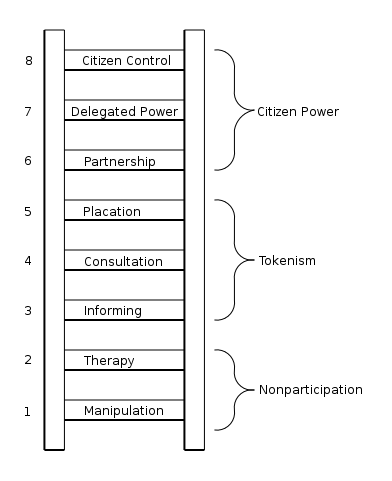I congratulate the crowdsourced contributions of each to what currently is called “edgeryders”.
I wish to bring forward a governance thread,
so that more of us can bring forward their own interpretations,
and how they position themselves in relation to potential for action.
I understand Edgeryders in itself is, from my point of view, a dynamic conception evolving over time.
note : this is a message that may be edited over time
///
What I currently notice,
is a central, closly knit bunch of people who are very actively engaged into coordinating.
///
I wish to bring forward some examples I witnessed in the past, with other organizations / networks.
-
A first important point I need to underline - is that often “network” and “organization” are used interchangeably, while I believe they need to be seen as different - with several organizations and projects being able to be supportive of an intentional network, yet being very aware of NOT letting one or more organizations end up taking control or assuming to “represent” the network.
-
A second very important point, is for such organizations to support an intentional network without enclosing it, I see the importance in the organizations and legal frameworks supporting infrastructure that can serve as a commons for the ( non enclosed ) intentional networks.
The organizations can choose who they want to govern themselves and operate, and their support in resources is aimed at intentional commons.
The big risk I see is in having organizations and individuals taking conrol on a commons.
///
Some more specific examples,
From my personal past experience with other networks / organizations over the last 12 years ( including european youth movements related to green political parties , but also hospitality networks , … )
I noticed patterns of a few very motivated people concentrating all the work in their own hands over time.
By doing so, I realized that defacto the power ends up centralized.
I also realize this can lead to burnouts, by making processes dependent on specific people.
I realized such people would be very competent workaholics.
I could see a progressive dissempowerment of the community because of the centralization of contextual information. Political games would be played, enclosures created that would be shared only with a few political allies and collaborators. These would often, in my personal experience, be related to specific priviledges , that would range from covering costs for attending meetings ( this is likely the most acceptable form in my view, as long as it supports a commons ), to specific priviledges of paid positions , or power positions within a specific organization.
A common patterns I also noticed in my past experience, is that a small minority would build on the enthusiasm of community, and end up representing such community, or rather, a networked intentional community. In the case of the young greens, just a few individuals claimed representing over 20 000 people, even though most of these people where inactive, or did not even know they where being represented.
In the case of hospitality networks, I noticed progressive developments which in the case of couchsurfing, lead what initially was a network into evolving into a not for profit organization, and then into a corporation. I witnessed developments and migrations of volunteers, who actually made the success and developed the networks , move from hospitalityclub to couchsurfing and then later to bewelcome. I will be happy to detail some of the underlining dynamics, related to power and governance, for those who may not be accustomed to these networks and their underlining forms of organization and development.
I wish to discuss on this thread, ways to focus on supporting a commons in the form of an intentional network, eventually through using or partnersing with organizations or institutions, while at the same time defending such commons.
I also wish to invite us to have a look at this thread :
https://edgeryders.eu/comment/6621#comment-6621
where I raised a few questions about branding, or more exactly identifiers.
The identifiers, and diversity of identifiers, imho also has an influence on understanding the agencies, and potential liberty of internal modes of organization of such brands / identifiers
( for example, Nadia suggests the following social contract draft - which may apply for a specific space, identified with a specific brand, but for me can not apply to the commons created : http://www.scribd.com/doc/114752294/Edgeryders-2-0-Social-Contract-proposal )
and the potential differentiation between the understanding of a commons and an enclosed environment.
I also wish to understand the social contracts related to each of such “spaces”, as to enable each to understand expectations and potential outcomes of each of such spaces, and make better judgement and choices regarding participation and support.
///
To have a better understanding of what I mean by empowerment, this scale / ladder of empowerment can be useful :
http://lithgow-schmidt.dk/sherry-arnstein/ladder-of-citizen-participation.html
